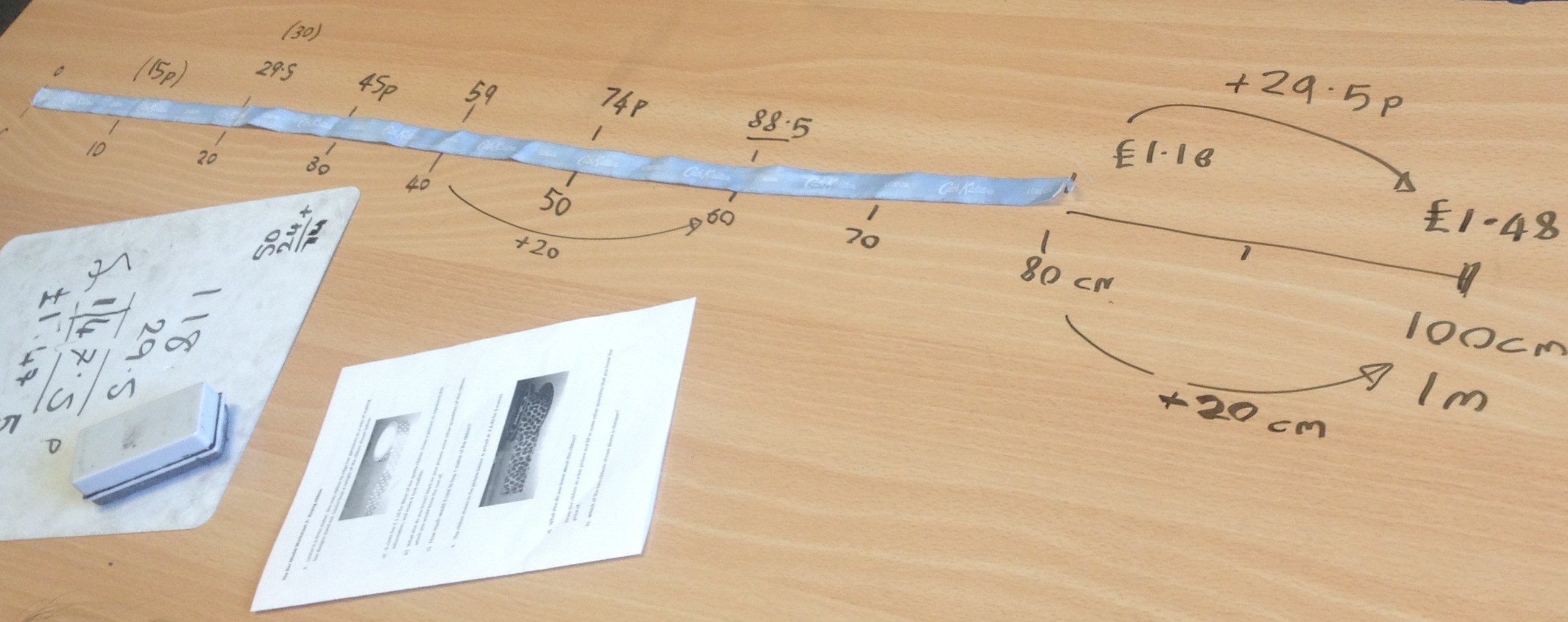Bar Modelling and Multiplicative Reasoning: Years 5-8 Continuity - Online/Telford
Friday 26 February, Friday 7 May, Friday 11 June Online - with the final workshop taking place face to face inbetween Telford and Wolverhampton
COVID Update - Materials adapted to be suitable to use for online lessons, as well as in class.
With normal transition arrangements not being possible in Spring and Summer 2020, this Work Group provides guaranteed collaborative opportunities beween Secondary Schools and their linked Primary Schools. There are two separate options for this Work Group:
1) 2½ days Telford based group, with linked schools working at the same table, on Fridays
26th Feb - 1330-1530 - online
7th May - 1245-1500 - online
11th June - 1245-1500 - online
2) 5 afternoons online group (all 1315-1545) with linked schools having some collaborative time in exclusive break out rooms). Participants joining the online group will need to be able to print some of the resources.
Fri 22nd January, Fri 12th March, Thurs 6th May, Fri 21st May, Weds 30th June.
We encourage secondary schools to book their place then invite linked primary schools to join them. Please list schools in your primary/secondary partnerships when booking.
Teachers from different phases will work together to improve communication between Key Stages 2 & 3 and strengthen the transition from primary to secondary school by focussing on curriculum and pedagogical continuity over Years 5 to 8. Central to the Work Group is the promotion of cross phase communication between teachers to address issues of maths knowledge and learning transition as distinct from pastoral considerations. The Multiplicative Reasoning resources provide a mathematical focus to the work, although individual Work Groups are free to focus on a different aspect of the KS2/3 curriculum.
Participants will develop understanding of Bar Modelling and pedagogical approaches to Multiplicative Reasoning for their work and develop a consistent approach to it through discussion, joint lesson design and delivery, observation and the development of documentation to support continuity.
Significant areas of the KS2 and 3 maths curriculum, including many areas children find difficult are connected through multiplicative relationships, though it is rarely made explicit in teaching. The project aims to explore the transformative potential of teaching and learning that makes these links explicit, enabling teachers and pupils to make connections and deepen understanding, including through use of Bar Modelling. Teachers will work together with specifically designed CPD and KS2 & KS3 classroom materials to bring research on the effective learning in these areas of mathematics into teachers' classroom practice.

Who will be leading the group?
Graham Charles
Graham is an NCETM PD accredited lead and is the strategic leader for Salop, Herefordshire and Wolverhampton (SHaW) Maths Hub. He has been working collaboratively with KS2 and KS3 Multiplicative Reasoning project leaders to develop this transition project, with more than 2000 teachers having taken part nationally.
Yvonne Thorpe
Yvonne is an NCETM Accredited PD Lead. She planned and co-led the KS1-2 Problem Solving and Reasoning Innovation Work Group last year and has extensive experience in providing support to schools in Telford in her role as Maths SLE.
Michelle Bishton
Michelle is an accredited Maths SLE. She has extensive experience in providing support to schools in Telford in this role.
Who is it for?
KS2 (especially teachers of Year 5 and Year 6) and KS3 teachers.
All participants will work collaboratively to achieve consistent approaches in cross-phase transition. Encouraging link Primary/Secondary School to register a delegate to support collaborative development of coherent learning approaches in transition to support pupils' progression is desirable.
Please get in touch with the Maths team from your local Primary or Secondary schools to see if they are interested in working collaboratively for this work group.
What are the intended outcomes?
- Improved progress for pupils, particularly in cross-phase transition.
- Increased confidence, resilience and enjoyment for in learning mathematics.
- Improved pedagogical and subject knowledge for teachers.
- Develop curriculum resources and activities.
This Work Group meets all 8 EEF Recommendations: https://educationendowmentfoundation.org.uk/tools/guidance

What will it involve?
Participation in all workshops and completion of school-based learning tasks between workshops.
Before Workshop 1, try Y5-8 Continuity - Task 0 - first on your own, then with a Y5-8 class.
Workshop 1 activites focus on progression in the use of representations from bar models to double number lines and ratio tables to make connected sense of problems. Participants will trial these activities with their own classes as school-based learning tasks.
Workshop 2 starts with professional learning through collaborative reflection of school-based learning task activities. Exploration of research lessons to deepen understanding of fractions is the main activity before planning the school-based learning tasks.
Workshop 3 begins with collaborative reflection of deepenng the understanding of fractions school-based learning tasks. Further exploration of links to proportional reasoning and use of bar models to solve more complex problems support connected understanding for teachers. Participants will be well placed to share this progessional development with colleagues using the research lessons provided.
- All of the research activities used have been trialled and refined by Maths Education researchers from The University of Nottingham, King's College, London and Manchester Metropolitan University.
- All activities incorporate solving and reasoning.
- Primary and secondary participants have provided positive evaluation feedback to share how participation in this work group has transformed their teaching to help pupils to prepare more effectively for the 'new' SATs and GCSEs - as much as 80% of the content of GCSE papers is underpinned by multiplicative structures.
- Helping pupils to see multiplicative structures in a connected way, and not as unconnected discrete topics, helps to deepen understanding and build resilience.
Participation in this work group has the potential to meet all 8 recommendations from EEFs Improving Mathematics in Key Stages Two and Three report.
What is the cost?
Free
Cover costs of up to £200 per day will be paid for teachers in their first two years of teaching. Please indicate where requested on the booking form.
Book
